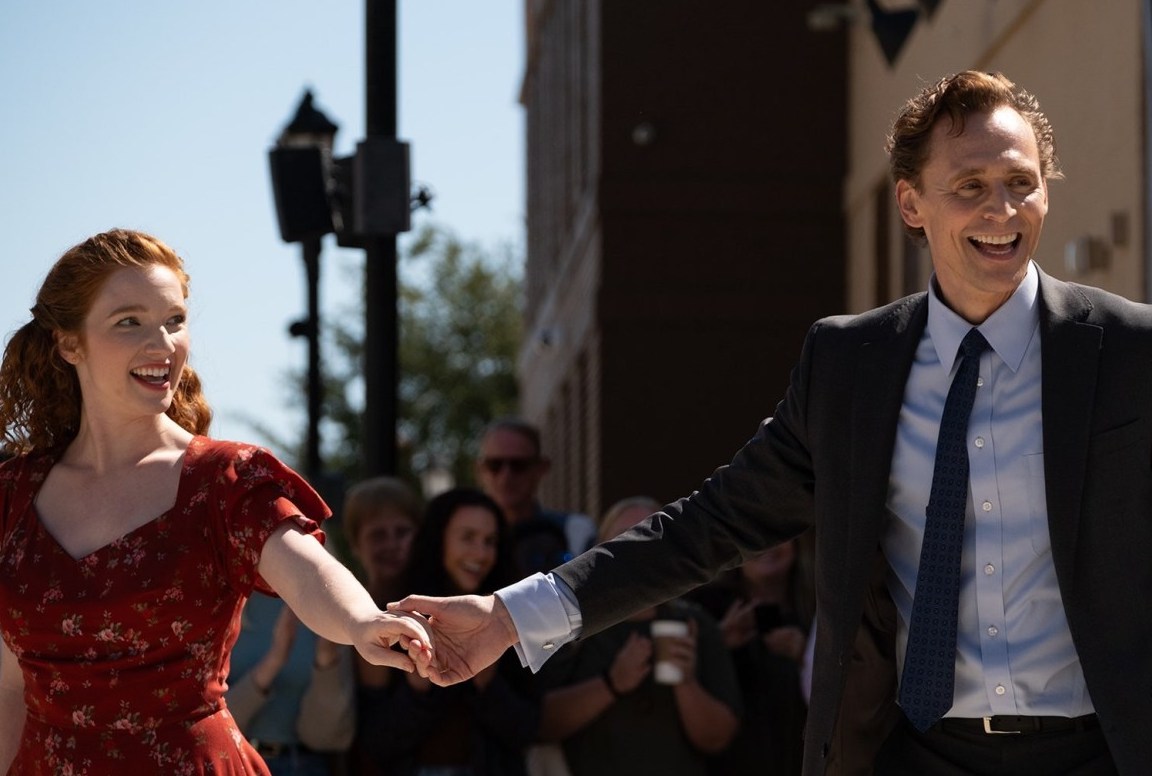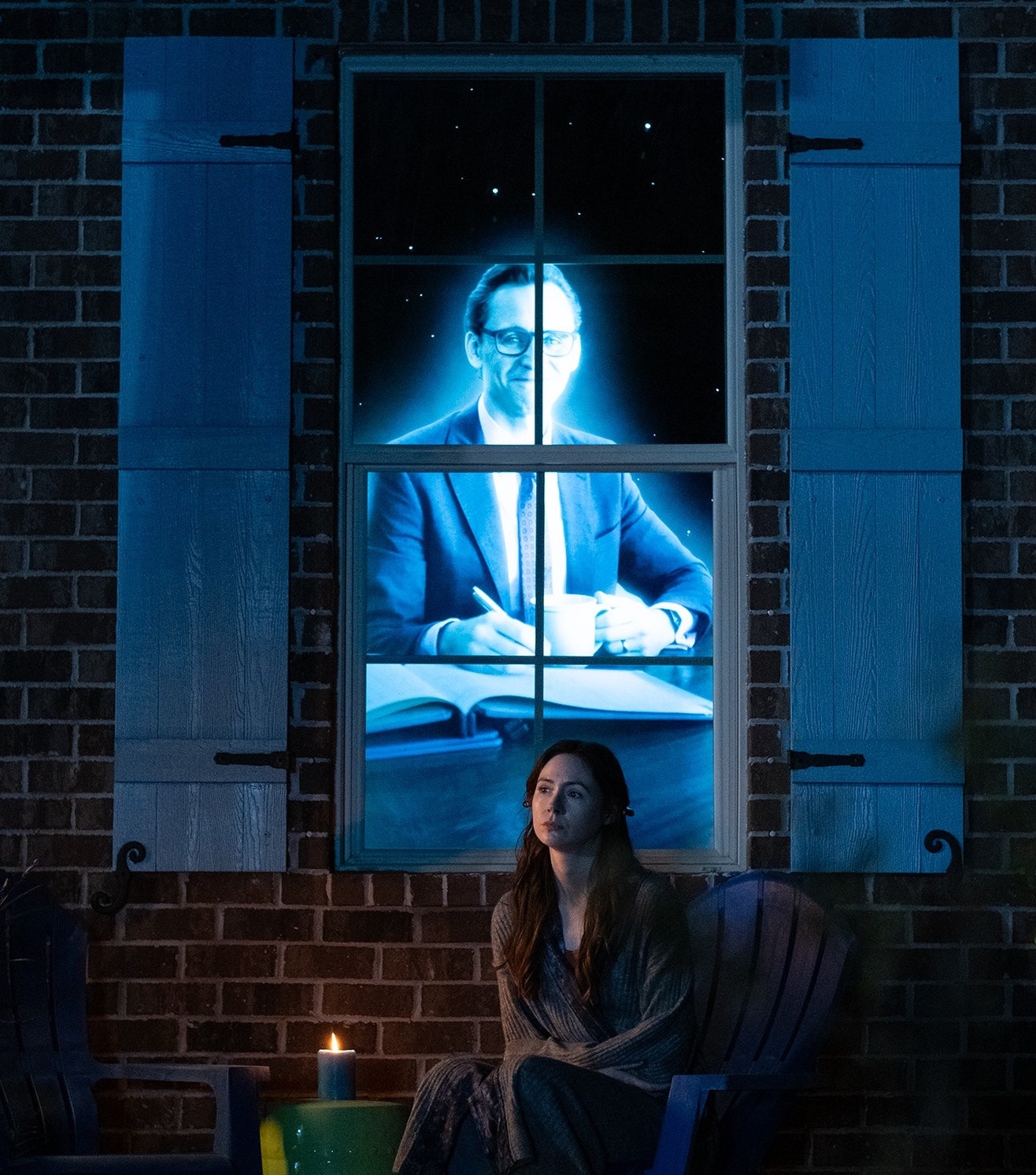‘The Life of Chuck’: Mike Flanagan’s Chicken Soup for the Existentialist Soul [TIFF 2024 Review]

I’ve said it many times to anyone who will listen: Mike Flanagan is the closest thing we have to our next-generation Stephen King. No, he’s not an author, yet the director, writer, and showrunner continuously proves himself to be uniquely capable of crafting and adapting works that are heartbreaking, life-affirming, and existentially terrifying while staying deeply relatable to the human condition. And his latest feature film, an adaptation of King’s 2020 novella The Life of Chuck, is no exception. This is yet another showcase of the filmmaker’s rare and expert ability to produce humanist drama cloaked in the otherworldly wonders of genre.
Both King and Flanagan are household names in the horror landscape, which I assume is a blessing and a curse for the versatile storytellers as they likely often face the tedious chore of being compartmentalized by both consumers and executives. The Life of Chuck is further proof that neither man is strictly a horror creator, but are instead specialists in character study. King has proven this many times before, with countless works including Rita Hayworth and Shawshank Redemption, The Green Mile, The Body and Hearts in Atlantis. Now Flanagan is also able to flex his similar versatility within this tragic, interdimensional drama.
By design, The Life of Chuck is both very simple and incredibly vast. It’s the story of one man’s life and the many faces he meets on his way toward the void. There is a sort of realism present for the majority of the film which is not so different from the early works of Robert Zemeckis or Steven Spielberg. Charles “Chuck” Krantz (played as an adult by Tom Hiddleston) embodies the relatable earnestness of Forrest Gump, Marty McFly, or even the young Elliot Taylor.
The film’s naturalism, and its metaphorical consciousness, are then expanded by way of a Walt Whitman motif. “I am large, I contain multitudes,” is a famous line from Whitman’s poem “Song of Myself.” Acting as the thesis of the story, these words are taken both literally and figuratively at times. At its root, the world as we all know it is between the ears of one man. And his name is Chuck.
Thanks, Chuck!

In line with Flanagan’s best works, including his Netflix series Midnight Mass, The Life of Chuck depends on its highly talented ensemble cast. An Our Town of sorts, the film is divided into three very different acts, differentiated by both genre and characters. A criticism I’ve encountered of Flanagan concerns his tendency to have characters monologue, or even dialogue, in great length as though they’re in an off-Broadway play. While this observation is not wholly inaccurate, it’s something worth celebrating rather than criticizing. Every character, no matter how small, gets their time to shine through words. And we don’t spend that much time with anyone. Even Chuck himself is a supporting player in a sense, as four different actors share the role over various stages of his life.
While it’s difficult to choose, there is a selection of standout performances in this Flanagan ensemble that are necessary to spotlight. Chiwetel Ejiofor and Karen Gillan play ex-lovers at the end of the world who are both caretakers of their community. Ejiofor plays Marty, a school teacher who has yet to give up on offering his students structure and normalcy while the world around them crumbles. Gillian plays his ex-wife, an emergency room nurse whose passion for helping others is her last shred of stability and purpose. They deliver heartbreaking and lovely performances as we watch them find their way back to one another.
This particularly emotional chapter of the film includes short but exceptional appearances by genre favorites like Harvey Guillén (What We Do in the Shadows), David Dastmalchian (Late Night With the Devil), and Matthew Lillard (Scream), who all play ordinary people in an average town who are tragically aware that an unexplainable end of times has started to close in on them. Dastmalchian gives a standout speech about the inexplicable disappearance of pornography from the internet, which, among all the other wreckage they’re facing, feels like an especially cruel joke. This moment is the perfect consolidation of what the film is doing right.
These big ideas are bigger swings that will likely polarize audiences on The Life of Chuck. For one thing, the result is unapologetically sentimental, which will rub some people the wrong way. It’s like how some audiences have a higher threshold for musical theatre than others. There will be those of us who feed off of Flanagan’s penchant for monologue, sentimentality, and the wonders of genre storytelling. Then, there will be others who will find his latest effort self-indulgent and saccharine. I can only request that you approach this film with an open heart and willingness to ugly cry.

Even though The Life of Chuck couldn’t be more any more different from Flanagan’s Midnight Mass, like that Netflix series, his latest project further proves that this creative is uniquely King-ian in his storytelling abilities. The fact that he’s now successfully adapted three of King’s most complex works, including Doctor Sleep and the once-deemed unadaptable Gerald’s Game, is just further icing on my reductive theory that Flanagan is in training to one day (hopefully a very long time from now) succeed King as the modern master of character-centered genre.
-
The Life of Chuck
Summary
Perhaps easiest described as ‘Our Town’ by way of string theory, Mike Flanagan continues to showcase why he’s uniquely capable of staging Stephen King at his most unadaptable with this heartbreaking rendition of ‘The Life of Chuck.’
Categorized: Reviews
